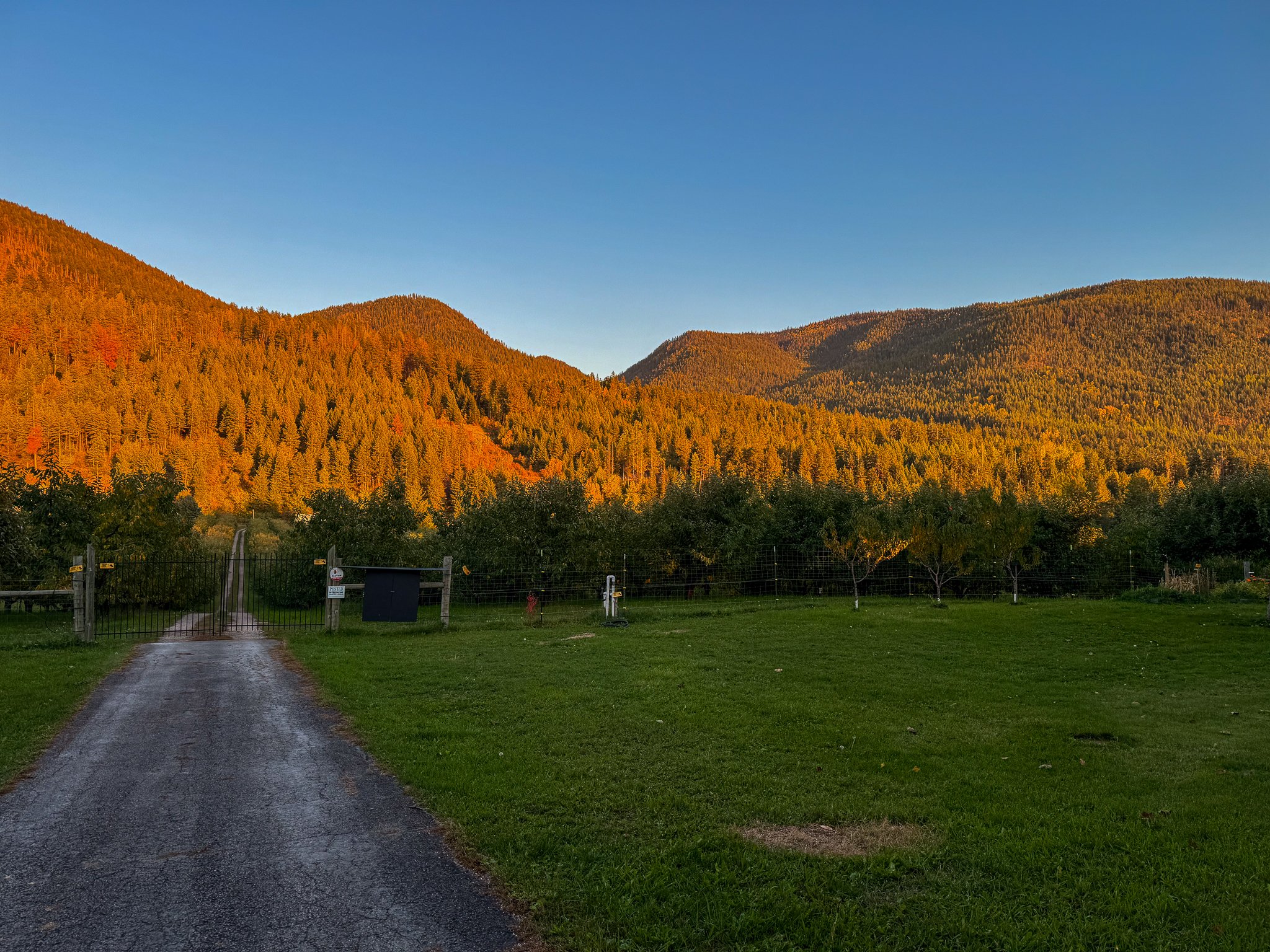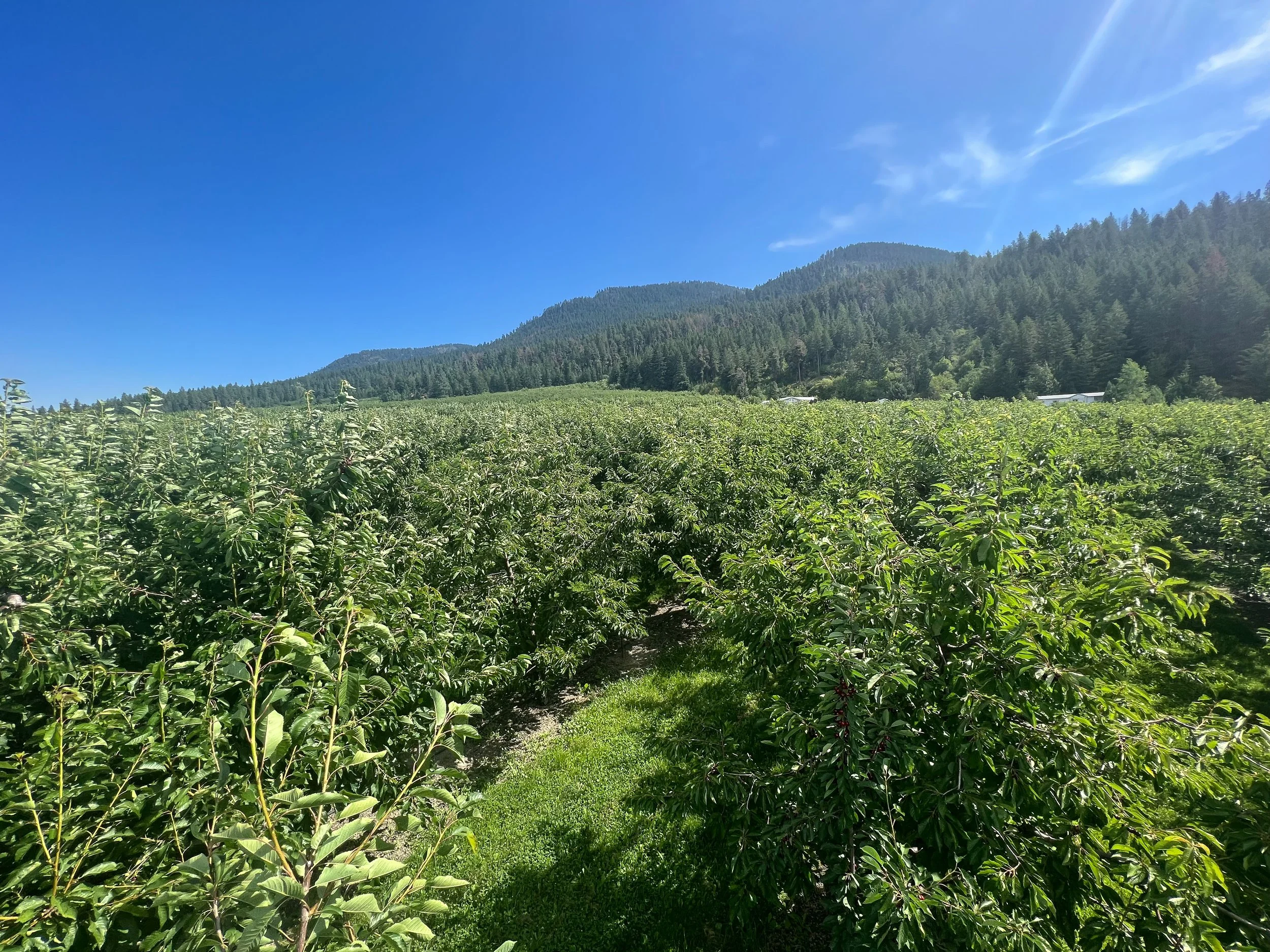About Us
We began our journey in 2021 when we purchased the orchard and stepped into the world of farming. From the start, it was clear that conventional methods wouldn’t be enough—we set our sights on building a regenerative system that could restore and sustain the land for the long haul.
A New Way to Grow
When we first jumped into farming, we were starting from scratch. Cherries are a specialty crop, and to be honest, we had no idea what we were doing. But as we got to know the orchard and saw how it had been managed conventionally, we knew we wanted to take a different path — one that felt healthier for the trees, the soil, and for us. That search eventually led us to regenerative farming, which just made sense. It wasn’t an overnight change, but step by step and over the last five years, we’ve been slowly rebuilding the orchard in a way that feels right.
In 2025, our soil was tested by Soil Regen, confirming that our efforts are truly making a difference. We’re now officially Regenerative Verified and proud members of the Nutrient Density Initiative, working to understand how our growing practices affect the nutrition of the fruit we grow. Later that same year, we did a second soil test at the end of the season — and the results were even better. The data shows what we can already see and feel in the orchard: healthier soil, stronger trees, and more vibrant fruit.
To our knowledge, Cherrywood Orchard is the first regeneratively verified Flathead cherry orchard around Flathead Lake, achieving verification in May 2025.
For us, this journey isn’t about perfection — it’s about progress. We’ll keep learning, testing, and improving because we believe that when we take care of the land, it takes care of us. And we hope you can taste that difference in every bite of our cherries.
From the Field to the Blog
Want to see what’s going on around the orchard? Visit our blog for seasonal updates and behind-the-scenes stories.
Tiffany Sybert
Owner, Cherrywood Orchard
Tiffany Sybert is the owner and business lead at Cherrywood Orchard. She manages all operations, customer relations, and partnerships, making sure everything runs smoothly from season to season. Whether it’s spring planting, summer harvest, or fall cleanup, Tiffany is involved in every part of the process and is the face of the orchard to many of our customers.
She runs the orchard alongside her husband, Tom Sybert, and together they’ve worked hard to bring new life to the land. Tiffany’s leadership, dedication to healthy fruit, and passion for community make her the backbone of Cherrywood Orchard.
Zack Sybert
Orchard Manager
Zack Sybert, son of Tiffany and Tom, manages day-to-day orchard operations at Cherrywood Orchard. He handles most of the on-the-ground work—from maintaining trees and irrigation to prepping the fields and caring for the land. Zack is deeply involved in every season and is committed to building soil health and supporting biodiversity through regenerative practices. Whether he’s pruning in the spring, checking on fruit in the summer, or prepping the orchard for winter, Zack keeps everything running behind the scenes. His hands-on work is a big part of what makes our fruit thrive.
Our Friends
-
Dirt Rich
Columbia Falls, MT
-
Soil Regen
USA
-
Nutrient Density Initiative
USA
-
Fed 'n Happy
Hutchinson, KS
-
Westland Seed
Ronan, MT
-
Missoula Farmers Market
Missoula, MT
-
Wheat Montana - Kalispell
Kalispell, MT
-
Genuine Ice Cream
Bozeman, MT
-
Buckateer Farm & Ranch
Mission Valley, MT











